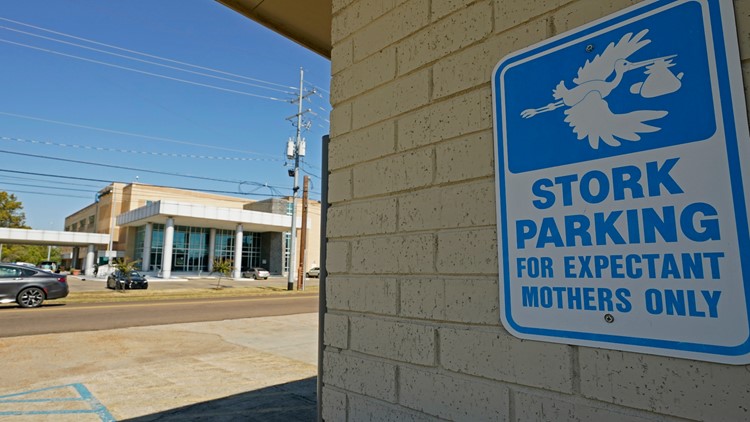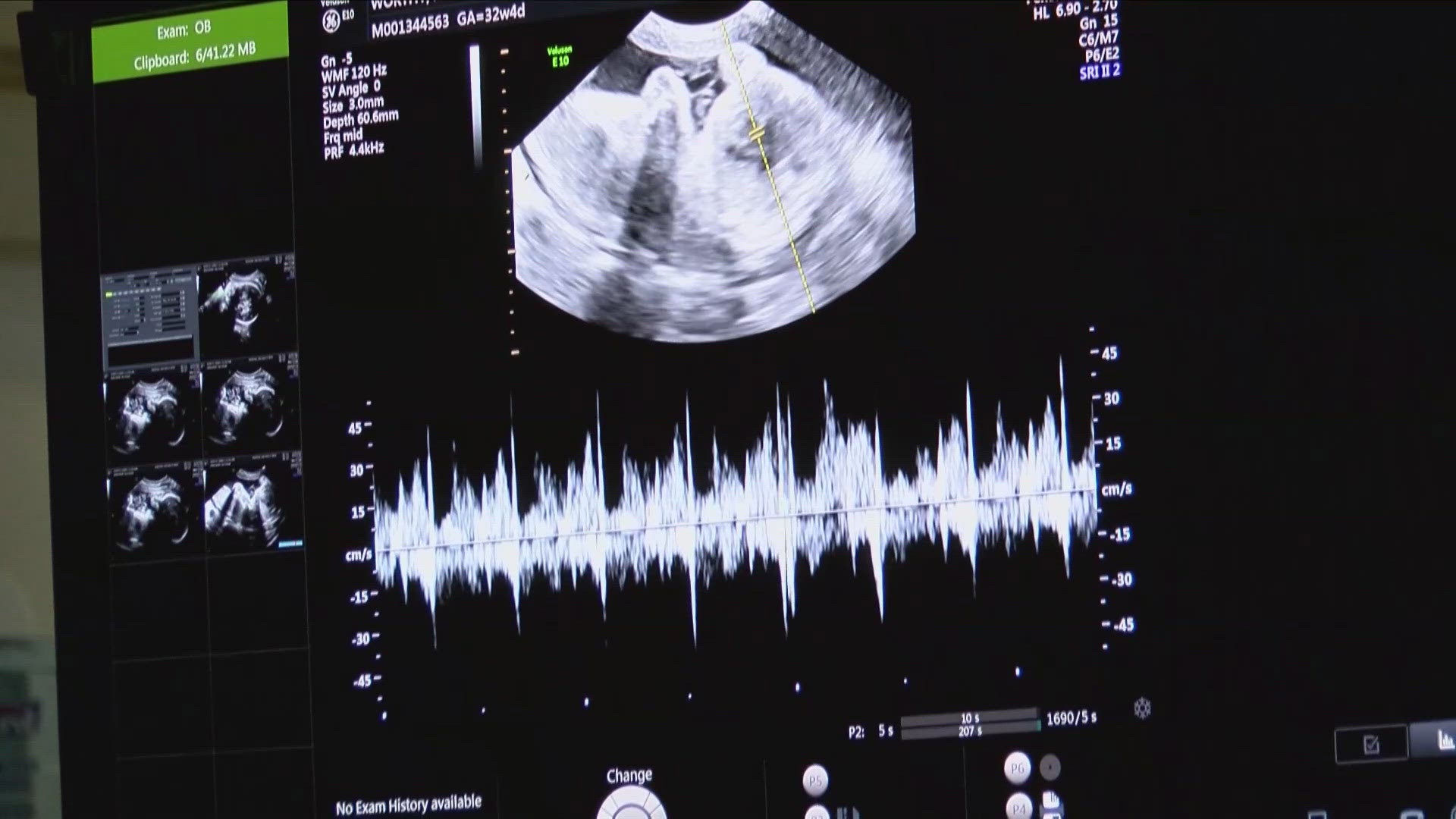GREENWOOD, Miss — In Mississippi, where health officials expect 5,000 more births each year as a result of the Supreme Court ruling upending abortion rights, children are more likely to die before their first birthday than in any other state.
Mississippi has the nation's highest fetal mortality rate, highest infant mortality rate, highest pre-term birth rate and is in the top decile of states in maternal mortality. Black mothers are nearly three times more likely to die due to childbirth than Mississippi's white women.
As the state's Republican leaders led the legal fight against abortion, Gov. Tate Reeves said he would do everything in his power to make Mississippi the "safest state in the nation for an unborn child."
But access to pre- and post-natal care has dwindled in Mississippi since the June ruling, making childbirth even more dangerous for poor women and children. The only neonatal intensive care unit in the state's impoverished Delta region closed in July under financial pressures, moving lifesaving care for ill or premature newborn babies about two hours away by car.
And now the publicly owned Greenwood Leflore Hospital has announced the permanent closure of its labor and delivery unit, saying it can't pay competitive wages and retain experienced nurses. The area's women will need to travel about 45 minutes to give birth at a hospital.
"If an emergency comes up and somebody lives in Greenwood or out in the country, where are they going to go? That could be a catastrophe," said Dr. Mark Blackwood, an OB/GYN based in the Delta.
Another hospital in coastal Mississippi also closed its labor and delivery unit, and several hospital systems are seeking buyers. All face more pressure due to the state's refusal to accept Medicaid expansion and the billions of federal dollars it would provide for health care in the state.
Months after the Dobbs ruling forced the closure of the state's last remaining abortion clinic, Mississippi Attorney General Lynn Fitch credited the state's Republican women for "leading the cause," and Reeves celebrated "100 days of protecting babies & dismantling the abortion lie."
But health care analysts, doctors and pregnant women are expressing alarm as options for maternity care disappear.
More than 2.2 million women of childbearing age live in "maternity care deserts" in the U.S., and another 4.7 million live in counties with limited maternity care access, according to an Oct. 11 report by March of Dimes, which focuses on maternal and infant health. The nonprofit defines maternity care deserts as counties with no hospitals providing obstetric care, no birth centers, no OB/GYN and no certified nurse midwives.
The organization provided data to the AP showing that across all states, Mississippi has the eighth-highest percentage of such counties, which snake through the Delta, an agricultural flatland where persistent poverty shapes daily life.
Infrequent prenatal visits can increase risks to both mothers and babies, according to the Kaiser Family Foundation, which tracks health statistics.
"When parents have to travel further and further distances, they have to miss more work. It costs more money, more gas and more time off," said Dr. Anita Henderson, president of the Mississippi Chapter of the American Academy of Pediatrics. "Our concern is that the ability for them to get those routine prenatal visits in a timely fashion will go down as well."
The Greenwood Leflore Hospital, whose slogan is "the right care at the right time," is warning expectant mothers to make arrangements to reach another hospital once they start having contractions. Meanwhile, pregnant women who arrive in a crisis will be stabilized in the emergency room, and then transferred to another facility that provides maternity care, hospital spokeswoman Christine Hemphill said.
Greenwood Leflore now directs expectant mothers to a hospital about 33 miles (53.1 kilometers) away in Grenada. Brenda Palmertree had two children there before moving closer to Greenwood, and finds it difficult to imagine driving that far while on the verge of giving birth. "If you go into labor you can't just stop it. Like, 'hello, stop for a minute I've got to drive 45 minutes.' It doesn't work that way," she said.
"In terms of pregnancies and deliveries, especially high-risk deliveries or emergency deliveries, we know that minutes matter," Henderson said.
Reeves and other Republican leaders have killed many proposals to expand Medicaid primarily to low-income workers whose jobs don't provide private health insurance, saying they don't want to encourage reliance on government help for people who don't need it.
About 60% of births in Mississippi in 2020 were financed by Medicaid, the foundation found — only Louisiana had a higher rate, at 61% — and Mississippi offers the federal minimum of two months of postpartum coverage. Advocates for low-income women say extending that coverage could reduce maternal mortality.
But Republican lawmakers killed a bill in this year's legislative session that would have let mothers keep Medicaid coverage for a year after giving birth. Asked whether it could save lives, House Speaker Phillip Gunn said "that has not been a part of the discussions that I've heard."
Reeves' office did not respond to an Associated Press request for comment on how his administration plans to address the recent closure of maternity care units.
Social services are already strapped in Mississippi, which could be ill-prepared for the consequences of bringing an additional 5,000 pregnancies to term each year, the estimate offered by Dr. Daniel Edney, the state health officer. Child Protection Services Commissioner Andrea Sanders said in September that her agency might lack the staff to care for more foster children.
But in the Delta now, providers and patients have more immediate concerns as OB/GYN services become harder to obtain.
Greenwood Leflore Hospital ceased to operate a OB/GYN clinic across the street on October 15. The University of Mississippi Medical Center has agreed to operate the clinic and the hospital is negotiating a long-term lease for the entire hospital with UMMC.
A nurse at Greenwood Leflore Hospital who asked that her name not be used because she wasn't authorized to speak about her employer wonders how the clinic will be able to operate without a nearby delivery unit.
"It's bad. We're all shocked at their decision. What sense would it make for them to have a clinic and then you have to drive 30-40 miles away?" the nurse said.
Two obstetricians have already decided to leave the clinic, according to the Greenwood Commonwealth. At least one said the distance between the clinic and the closest delivery unit would be too much to bear.
___
Michael Goldberg is a corps member for the Associated Press/Report for America Statehouse News Initiative. Report for America is a nonprofit national service program that places journalists in local newsrooms to report on undercovered issues. Follow him on Twitter at twitter.com/mikergoldberg.



